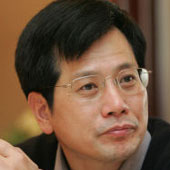Harmonious Diplomacy and Global Governance (Part III)
What is China’s strategy for participating in international affairs?
April 30, 2009
With the arrival of the era of globalization, the fates of all nations are interlinked to an unprecedented degree.
Only through global governance can the diverse problems confronting human society be resolved and a new global order be established.
The emergence of global governance not only highlights humankind's shared problems and destiny, but also reflects people's efforts to pursue a world of sustained peace and common prosperity.
So far, there is no clear and universally accepted definition of global governance. Generally speaking, global governance could be defined as the attempt to resolve such problems as conflict, environmental degradation, the defense of human rights, international migration, drug-smuggling and infectious diseases through international regimes with binding force so as to maintain international political and economic order.
The idea of a harmonious world has much in common with popular theories of global governance, in that these all focus on the destiny of humankind, object to unilateralism and hegemonies, oppose a "Pax Americana" while insisting on strengthening the role of the UN, advocate resolving global problems through international cooperation — and devote themselves to establishing international political and economic order.
The idea of a harmonious world epitomizes the Chinese government's standpoint on international affairs and global governance. It also highlights China's global strategy at the beginning of the 21st century, which is premised on a harmonious diplomacy with the following components:
A value orientation and basic objectives
The basic objectives of harmonious diplomacy include realizing sustained peace by firmly rejecting war of any kind; opposing terrorism; wiping out violent crime; resolving conflicts among nations through dialogue and cooperation; realizing common prosperity in the world through the development of all countries; narrowing the gap between North and South; eliminating poverty; improving human rights; enhancing the welfare of everyone so all can share in the achievements of human civilization; advancing the democratization of international relations, which entails establishing democratic, just and rational international political and economic orders; and harmonizing relations between human society and nature by using precious natural resources efficiently and economically, protecting the environment, reducing pollution and realizing the sustainable development of the world.
International regimes
Harmonious diplomacy gives great weight to international regimes, particularly the role of the UN in maintaining global security and establishing new orders for international political and economic affairs.
Main actors
The main actors of harmonious diplomacy include sovereign states and international organizations. From the perspective of the Chinese government, every sovereign state should enjoy equal rights in international affairs as well as shoulder inescapable responsibilities for maintaining world peace and development.
The developed countries and great powers, however, should take on more responsibilities for sustained peace and common prosperity.
Key fields
The key fields of harmonious diplomacy include regional and global security — which are the preconditions of a harmonious world and without which a harmonious world will be impossible.
Other key fields include international cooperation, as it is only through cooperation that the common interests of different countries and the common prosperity of the world can be realized; protection of universal human rights, since it is the responsibility of the international community as a whole to protect human rights such as the tight to exist and the right of development; global environmental protection, since the degradation of the ecology and the environment threatens the existence of all human beings; global risk management, since many of the threats to domestic political and economic orders have been globalized in recent years, including financial crises, disease, and communication challenges; and confronting transnational criminal activity, since crimes such as terrorism, smuggling, and drug trafficking have also been internationalized. Only through cooperation will the international community be able to crack down on these crimes.
Important strategies
The strategies of harmonious diplomacy center on dialogue and negotiation, win-win outcomes achieved through cooperation, finding commonalities while reserving differences, and promoting an environment characterized by inclusion and openness. To reach maximum consensus, harmonious diplomacy requires equal, friendly and sincere dialogue and negotiation, and mutual trust as well as mutual respect.
To realize win-win outcomes, harmonious diplomacy calls for equal and reciprocal cooperation and the maximization of common interests.
Harmonious diplomacy aims to reduce the differing interests among countries by promoting consensus. Strong conflicts of interest that prove impossible to bridge in the near term should be handled according to the principle of shelving disputes and looking forward.
Harmonious diplomacy accepts the diversity of civilizations and national cultures. It encourages countries to tolerate different political, economic and cultural patterns while condemning such behaviors as imposing one country's culture, values and institutions on another country.
China's strategy of pursuing a harmonious world not only embodies the universal values and aspirations of human beings in the era of globalization, but also epitomizes the political, economic and cultural characteristics of China. As the biggest developing country, China is making every effort to develop itself by sticking to the road of modernization with Chinese characteristics.
At the same time, to maintain the diversity of world civilizations as well as to promote comprehensive progress in the international community, China is actively participating in international affairs with a strong sense of responsibility.
In traditional Chinese culture, the notion of "harmonious but different" is a highly valued concept. China's new global strategy incorporates this traditional philosophy and endows it with new elements appropriate to the era of globalization.
Editor’s Note: This is the third part in a three-part series from Yu Keping’s book, “Democracy is a Good Thing.” Copyright 2009 The Brookings Institution. Reprinted with permission of the Brookings Institution Press.
Read Part II here.
